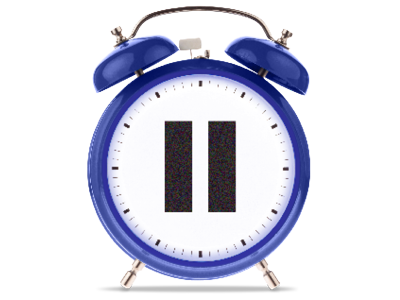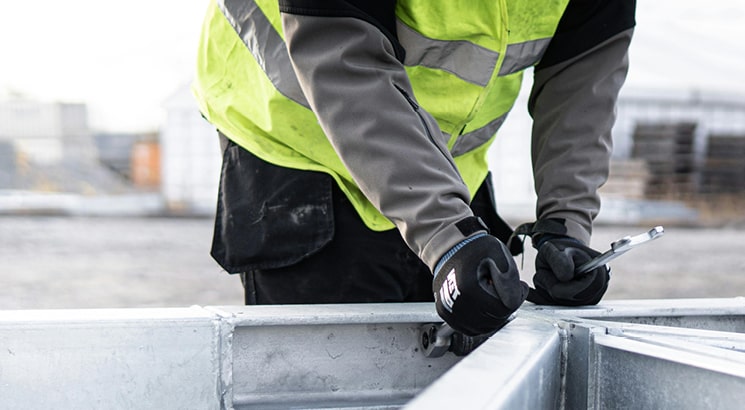When life changes...
Life is rarely straightforward, so it’s important to understand how a change in circumstances may affect your pension.
A change to your circumstances could mean many things. We’ve included a summary of some of the most common changes and how they may affect your pension below.
Select the specific topics to understand a little more about each one of them. And please check your member booklet for full details.
If you’re absent from work for any reason, you’ll need to check about continuing pension contributions with your employer.
Family leave
If you’re on family leave, for example following the arrival of a child, then you may get one of these types of pay:
- Maternity pay
- Paternity pay
- Family pay
- Adoption leave pay
If you are getting one of those types of pay, then what you pay into your pension will be based on the pay you have received during your period of absence.
Your pension benefits will not be affected and will continue to be based on your normal rate of pay, which you would have received if you hadn’t taken any leave.
If you get no pay during family leave then your payments into your pension will be paused.
Please speak to your employer for more details.


Taking a career break
If you are planning on taking a career break from work, you will need to speak to your employer to check what arrangements they have in place and what the impact will be your pension contributions and benefits.
When the break starts all payments into your pension will stop, unless your employer makes alternative arrangements. You will also stop building up membership in the Scheme until you return.
Once you return to work your contributions and membership will restart automatically. Your employer may also give you the opportunity to buy additional membership to cover the length of your career break.
If you do not return to work, you will be treated as having left the Scheme when the career break started.
You should speak to your employer for more information, including details about what death benefits may be payable if you die during your career break.
Ill-health
If you need to stop work completely due to ill-health, you may be able to start taking your Magnox pension and cash lump sum straight away, even if you haven’t reached Normal Pension Age (NPA). We call this an ill-heath pension.
You won’t be given an ill-health pension automatically, you must meet the criteria outlined in the Scheme rules to qualify. This includes:
- having at least 5 years' membership in the Scheme. However, the 5-year qualifying period does not apply if your ill-health is a result of your job. Please check your member booklet to find out more.
- you are under your NPA, and
- medical experts chosen by the Trustee provide evidence that you’re unable to work in your current or other suitable job
As long as you meet this criteria, your benefits will not be reduced for their early payment. You may also be awarded additional membership on the calculation of your pension.
If you’re under NPA and you return to work while claiming ill-health benefits, your pension may be reduced or suspended. When you reach NPA, your pension (including any enhancement) will be reinstated even if you carry on working.
You can find out more about taking your pension early due to ill-health in the member booklet.

Divorce or the dissolution of a civil partnership
If you’re going through a divorce or the dissolution of a civil partnership, your pension is likely to be considered along with your other assets when financial settlements are worked out.
A Court order can be made to transfer part of the value of your pension benefits during the divorce or dissolution proceedings. If this is the case, it would mean your Scheme benefits will reduce to provide benefits for your ex-spouse or ex-civil partner.

How your pension can be shared out
There are a number of ways for your pension to be dealt with during a divorce or dissolution of a civil partnership. Typically, Courts tend to favour a Pension Sharing Order (PSO).
Pension Sharing Order (PSO)
With this option, a one-off payment that is agreed by both parties and approved by the Court, is made from your pension to your ex-spouse or former civil partner at the time of divorce or ending of a civil partnership. Their share is taken off the total amount of your pension – this is known as a ‘pension debit’. Your ex-spouse receives their share, known as the ‘pension credit’ as soon as the order is finalised. Once the payment has been made, your ex-spouse will have no further claim to your pension.
Pension Sharing provides for a clean break between both parties at the time of divorce or ending of a civil partnership. This is because assets are split immediately and it’s up to both parties to decide what to do with their shares independently.
Other options may include:
Pension offsetting
With Pension Offsetting, you keep your pension assets to yourself in their entirety while something else of the same or similar value, such as property, is awarded to your ex-spouse. If your situation changes in the future and you re-marry or die, your offsetting agreement won’t be affected.
Pension Attachment Order (Earmarking Order)
With this option, when you start getting your pension, a certain amount that is agreed by both parties and approved by the Court, will go to your ex-spouse or former civil partner. The amount could also include a portion of your lump-sum death benefit and/or your retirement lump sum. The payments will be made directly to your ex-spouse or former civil partner when you decide to take your benefits. The State Pension is not included in it, though.
Will any Additional Voluntary Contributions (AVCs) you’ve paid be split?
Any additional payments you’ve made to your pension pot, will be included in the calculations at the time of divorce. They’ll form part of the total amount of your pension that will be shared between you and your ex-spouse or former civil partner.

Will your State Pension be shared?
Your basic State Pension won’t be shared if your marriage or civil partnership ends.
However, if you have reached State Pension age before 6 April 2016, your ex-spouse could use your National Insurance contributions to increase their basic State Pension. This is only valid, though, if they don't remarry or enter a civil partnership before they reach their State Pension age.
You can check your State Pension forecast on the government's website.
What is the process and how long does it take?
When considering your pension as part of a divorce or dissolution of a civil partnership, you will usually require details of your pension benefits, including:
- A CETV (Cash Equivalent Transfer Value) for divorce purpose – this takes into account the value of your pension and lump sum (or pension in payment if you have retired), the value of your ex-partner’s dependant pension, and the value of your death after retirement lump sum.
- The amount of lump sum death benefit payable if you died in service
- Details of any dependant’s pension
- Your period of membership
You, or your solicitor, can request this information from the Scheme administrator, Broadstone. Please bear in mind that there is a charge for a CETV in divorce, and it may take up to 10 working days to process.
You or your legal representative will need to confirm to Broadstone once any final decisions have been made and supply any necessary documentation, such as the stamped Pension Sharing Order and Decree Absolute.
Broadstone will then send the necessary paperwork to both parties for completion.
Broadstone will only begin processing any changes to your pension benefits once all of the paperwork has been returned. We then have up to 4 months to implement the changes and make any necessary payments.

MoneyHelper
You can find additional information and support on managing your finances during a relationship break-up on the MoneyHelper website.
A change to your working hours
If your working hours change, it’s likely your wages will too. That means how much you pay into your pension may also change.
If you go part-time then your pension benefits will still be calculated using your full-time equivalent pensionable pay but your pensionable service will be based on your full-time hours.
If you’re leaving work entirely, your active membership of the Scheme will end automatically.
You can find more information in your member booklet.

Death
It’s not a happy thought, but it’s important to know what happens to your pension when you die.
Death in service
A lump sum will be paid out following your death. How big the lump sum will be depends on whether you’re married or in a civil partnership at the time of your death.
- If you’re married or in a civil partnership, your spouse or civil partner will also receive an immediate pension.
- If you’re not married or in a civil partnership, the Trustee may decide to pay the equivalent of the spouse’s or civil partner's pension to a dependant partner.
- If you have children, they will receive a percentage of your spouse’s or civil partner's pension.
More information on what happens to your pension after you die is available in your member booklet.
Death in retirement
If you die within 5 years of retirement, a lump sum will be paid equal to the balance of your pension that would have been payable for the remainder of the 5-year period. This is also known as a 5-year guarantee.
In most circumstances, your spouse or civil partner will receive an immediate pension as well.
More information on what happens to your pension after you die is available in your member booklet.
